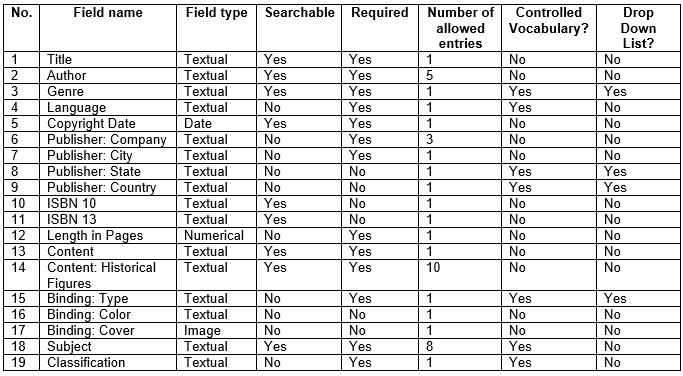I’m wrapping up my second draft of my IOP for INFO 5200 this week. (That’s the second part of my Information Organization Project, for non-UNT folks.) It’s a project that we work on all semester, to show mastery of the ALA’s 3rd core competence for librarians: Organization of Recorded Knowledge and Information. We’re basically considering every step of the process to organize and build a database for a collection.
The assignment is turned in throughout the semester as we work on building the collection. Stage one was turned in at the end of January; it was about two pages long and primarily focused on user needs for our imaginary collection. But this portion of the assignment built another 13 pages, between the sections describing my ideal system of organization and database, as well as the reality of reshaping it after I started using the software, and a variety of appendices that demonstrate the organization of my information.

The prep reading was heavy: Five textbook chapters and about 25 articles, plus ten written lectures and five video lectures. And I had another research assignment for this class due in the middle of the month, delaying my start on this section.
But here’s the thing: This is the most realistic assignment I’ve had to prepare me for what I might do as a librarian. Read to learn about new technology. Juggle multiple projects and deadlines. Analyze and report on how we’ll make this system work, since this is what we have to deal with, rather than an ideal software.
As much as I complained about the reading, and how much my forearms hurt the day after I typed the majority of my new section, I know this is one of the most pragmatic assignments I will ever have. And I can respect that. I appreciate that the work I’m doing now prepares me well for what I’ll be doing once I have my degree.